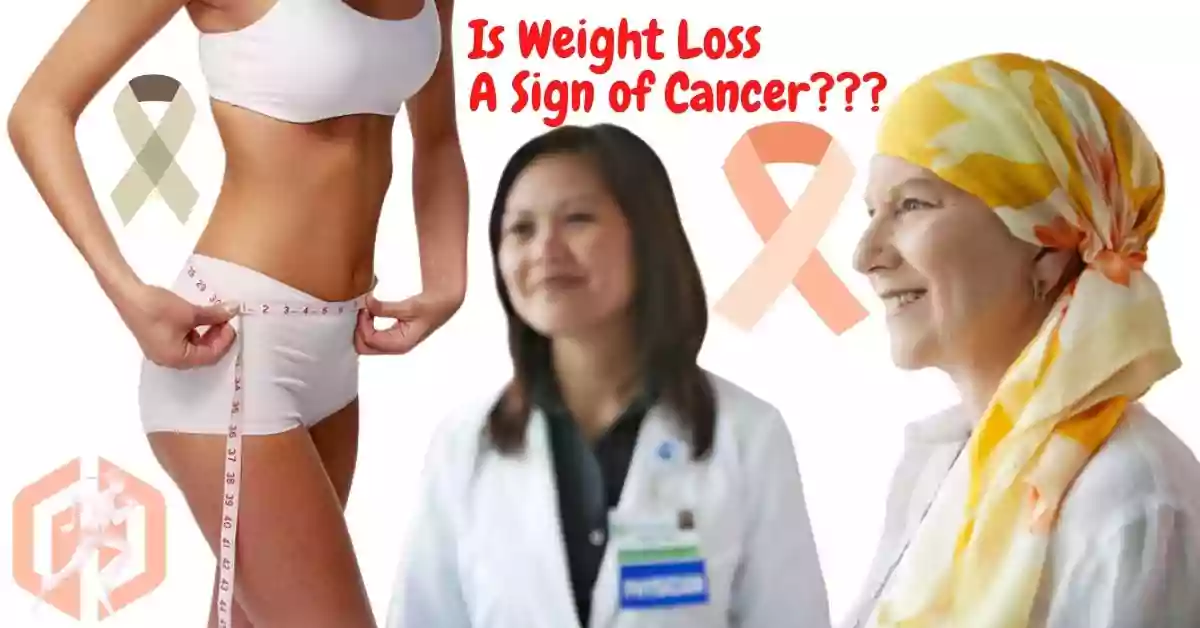Unexplained weight loss is actually not considered normal and may be a sign of a serious illness, such as cancer. In fact, frequent weight loss can be both a symptom of cancer and a side effect of treatment or the illness itself. Losing weight for no apparent reason does not exactly mean you have cancer. Is weight loss a sign of cancer?
Why Does Cancer Cause Weight Loss?
Cancer cells demand more energy than normal healthy cells, so your body may burn a lot of energy and more calories at rest than it normally would. The cells also release substances that affect how your body actually uses calories from food, which also can easily contribute to weight loss.
Why weight loss in cancer?

As your body tries to protect or defend itself against cancer, the immune system perfectly produces substances called cytokines that easily increase inflammation. Cytokines can easily alter metabolism system and interfere with the hormones that control appetite, causing further loss of weight.
Weight loss is also directly connected to cancer treatment or may be related to cancer treatments. Chemotherapy and radiation therapy to treat cancer can cause nausea and vomiting, as well as a loss of appetite. Some patients develop deep sores in their mouths, which make it really challenging or painful to eat normally.
Cancer can take not only a physical toll or body level problem but an emotional one as well. Along with fatigue and weakness, patients may have stress, depression, or anxiety — all of which can easily have a negative effect on appetite and energy levels.
What type of cancer causes weight loss?
Some types of cancer are really more likely to lead to weight loss than others. Cancers that directly affect the mouth or throat may make chewing or swallowing difficult. Patients with nausea, a common and most general side effect of cancer, may have little or no appetite and may be unable to keep food down. Tumors that directly affect organs near the abdomen, such as ovarian cancer, may press on the stomach as they grow, so patients actually feel full even though they’re eating less.
According to the American Cancer Society, unexplained weight loss is often the initial or very first noticeable symptom of cancers of the esophagus, pancreas, stomach, and lung. Other cancers, such as ovarian cancer, are more likely to cause weight loss easily when a tumor grows large enough to press on the stomach.
When should I be concerned about unexplained weight loss?
When to worry about weight loss? Your weight can easily fluctuate for number of reasons or various reasons. A life-changing or stressful event can cause you to lose weight easily and unintentionally. Even having an especially busy schedule for a while can cause a temporary change in your regular food intake and activity level, causing you to lose a few pounds.
In short, there aren’t any exact firm guidelines or rules. But some experts strictly follow the rule of thumb that an unintentional weight loss of more than near about five percent of your body weight in a period of six months to a year calls for a perfect medical evaluation.
Where do you lose weight with cancer?
Why am I losing weight but eating more?
Cachexia: Some people may lose weight frequently despite eating normally and lightly. This is called cachexia. With cachexia, your body may not be able to absorb all the fat, protein, and carbohydrate from the food you eat. And you may be burning up calories really faster than normal.
People with cachexia lose muscle frequently and often fat too. Scientists think that cancer frequently releases chemicals into the blood. The chemicals easily contribute to the loss of fat and muscle.
Is weight loss a sign of cancer? Not all cancer patients lose a lot of weight. In fact, there are some cancers that actually result in weight gain during treatment. Certain types of chemotherapy, hormone therapy for cancer, and harmful medicines, such as steroids, can cause the body to retain fluids or increase a patient’s appetite so that they eat more, causing weight gain.
Do you always lose weight when you have cancer?
However, for many patients, the type of cancer and its treatment make it really hard for them to eat well enough to take in all the nutrients and minerals required to maintain weight. A patient may seem to be eating enough, yet can still frequently lose weight.
Cancer and cancer treatments can easily affect taste, smell, appetite, and the ability to eat enough food or absorb the nutrients from food. Malnutrition is actually common in people with cancer and occurs when there’s an imbalance of energy, protein, minerals, or other nutrients.
The bottom line
It’s actually understandable to worry about cancer when you really have unexplained weight loss, but there are many other possible reasons and causes. If you’re concerned about your frequent weight loss and have other concerning symptoms, make an appointment with your doctor or healthcare provider. Keep in mind that unexplained weight loss is exactly not an indication of cancer. It simply tells us that proper investigations may be needed to perfectly ensure that cancer is actually not the cause.
If cancer is found, early signs and identification are always better, providing healthcare providers the chance to properly treat the disease when success rates are really higher. It also perfectly ensures that you are provided medications to treat the symptoms related to weight loss, whether it be an anti-diarrheal or oral antibiotic.
There are also effective high dosages medications, such as steroid and progesterone therapy, that can really help stimulate appetite, promote weight gain, and perfectly enhance a person’s overall sense of well-being.
While it’s actually never a good idea to assume that weight loss = cancer, it’s always good to know that there are proper treatments that can really help if there is.
FAQs.
About 40 percent of people with cancer say they actually experienced unexplained, unintentional weight loss leading up to their starting or initial diagnosis, according to the American Society of Clinical Oncology.
Cachexia. Some people may frequently lose weight despite eating properly and normally. This is called cachexia. With cachexia, your body may not be absorbing all the fat, minerals and protein, and carbohydrates from the food you eat.
Doctors need the actual and real information about grade and stage to perfectly plan your treatment. It may take a few days before your doctor has the exact results of all the tests. They will then be able to tell you whether you have actually cancer and talk with you about your best and proper treatment options.
Some types of cancer do not form a tumor. These include leukemias, actually most types of lymphoma, and myeloma.
Carcinoma in situ: This initial level or early-stage cancer is confined to the layer of tissue from which it actually started, and has not spread to surrounding tissue or other parts of the body.
Hi, My name is Helena and I’m a founder of HealtHowdy.com. Over the years I’ve helped hundreds of people to live a healthy and fit life. Nowadays, Fitness is everything, if you want to Look Attractive and Get Updated, you can Join Me. WhatsApp
